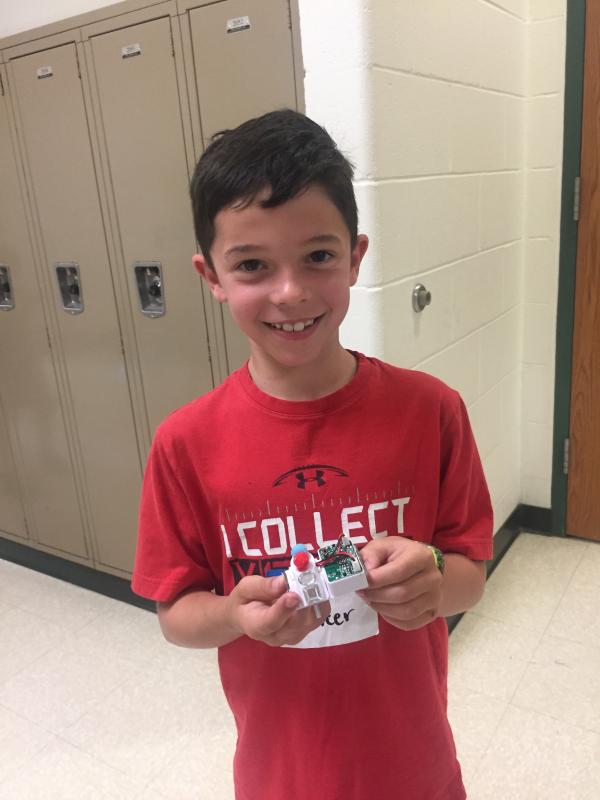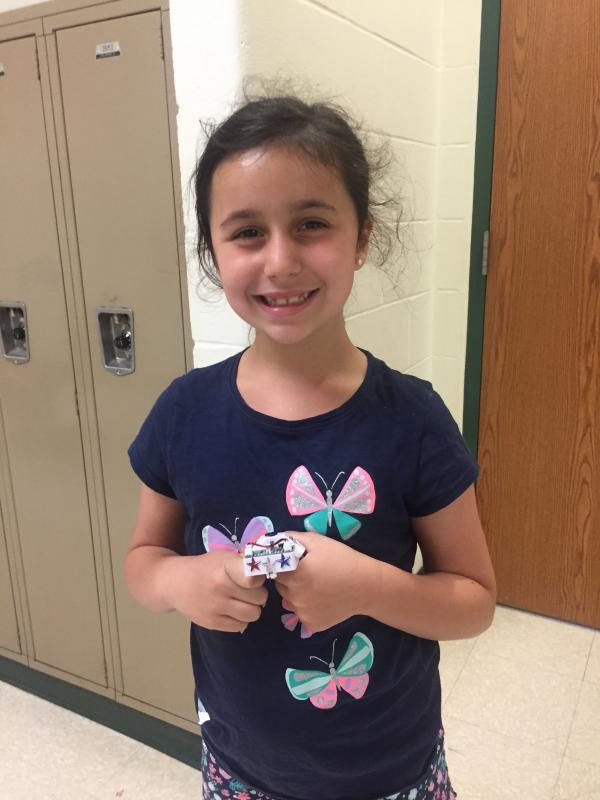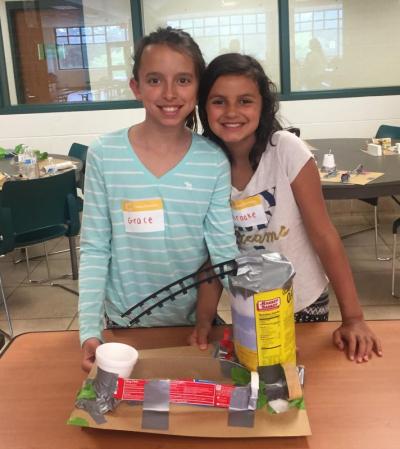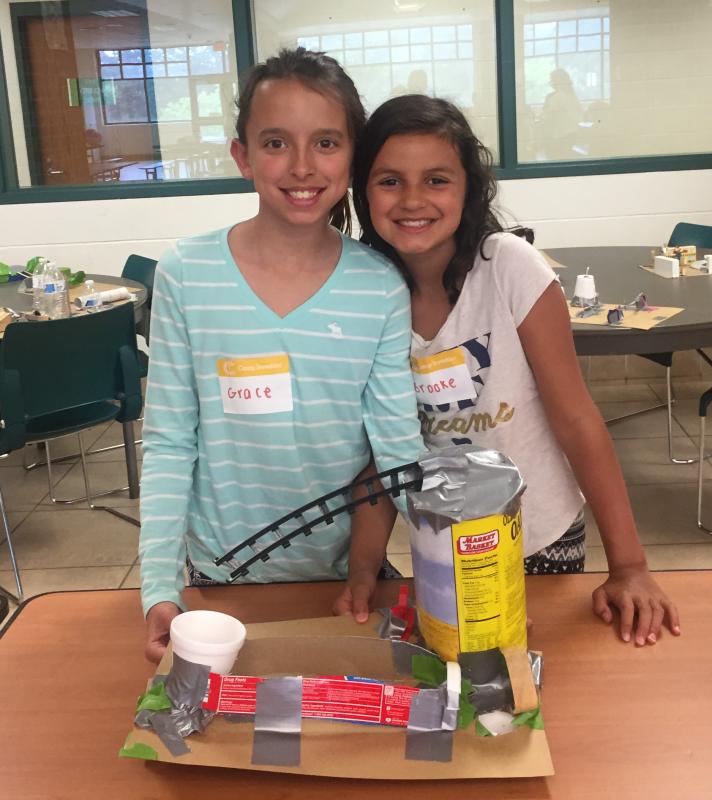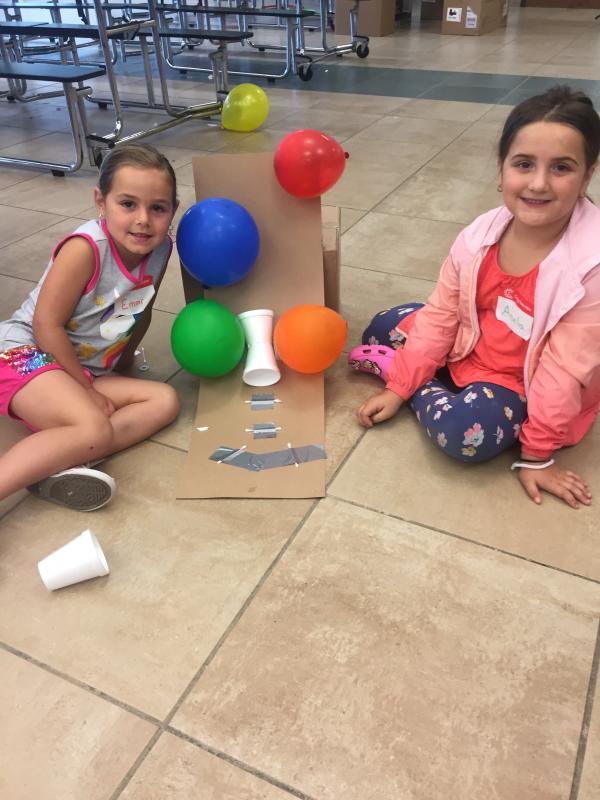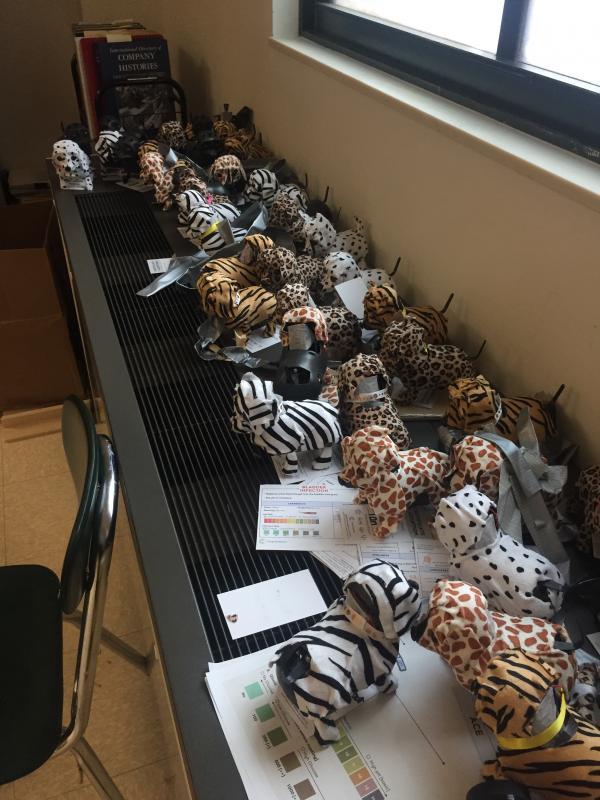Robot dogs, mini mansions, and mini-golf abound at Camp Invention
The halls of Dartmouth High School were buzzing with the excitement of new ideas at Camp Invention.
Throughout the week, 107 campers put their science, technology, engineering, and mathematics skills to the test with invention-themed challenges.
Although the activities were adjusted for the kids' skill levels, they are all working with the same basic tools: a robotic dog, an optibot, wiring for a mini-mansion, and recyclables that were used to build it all. They also learned about the science of stickiness, and built obstacles for a mini golf course.
Amanda Depin, the co-director of Camp Invention and a third grade teacher at DeMello Elementary School, said the summer camp integrates STEM education into activities in a way that is still fun for kids.
“They’re learning, but it doesn’t feel like summer school,” she said.
One group of kids worked with “Optibots,” which are tiny robots which use a sensor to drive around on a course designed using markers.
“You turn it on and put it on the track, and it follows the line,” explained Emma Pickering. “But sometimes it gets confused.”
When that happens, just putting it back on the track is usually enough to get it going in the right direction.
Some of the kids experimented with the psychology of the bots. One observed that when he encouraged the bot to stay on the track, it immediately veered off. Soon, there were competing chants of “stay on” and “go off,” but the results weren’t immediately clear.
In a classroom nearby, campers imagined combinations of smart devices in their “Mini Mansions” that would make their lives easier.
Lucas Ross planned a hammock connected to a satellite so loungers could listen to their favorite music, and Sarah Galipeau worked on an idea about a candle connected to the counter that could change the temperature of the room. The flame would grow to warm the room up, or turn blue to cool it down.
Maggie Silverman and Katie D’Ordine are high schoolers working as interns at the camp for community service hours, who said they are learning, too. Through helping lead the children, they are learning how to teach and help the campers figure things out, instead of just doing things for them.
In the cafeteria, campers used recyclables brought from home to make mini golf holes. They designed their own courses, and problem solved on their feet to make their ideas work.
Brooke Santo and Grace Rebello, incoming fifth graders, showed off their elaborate invention which used a piece of railroad track, an oatmeal canister, and a styrofoam coffee cup to create a path for the ping pong ball to travel.
